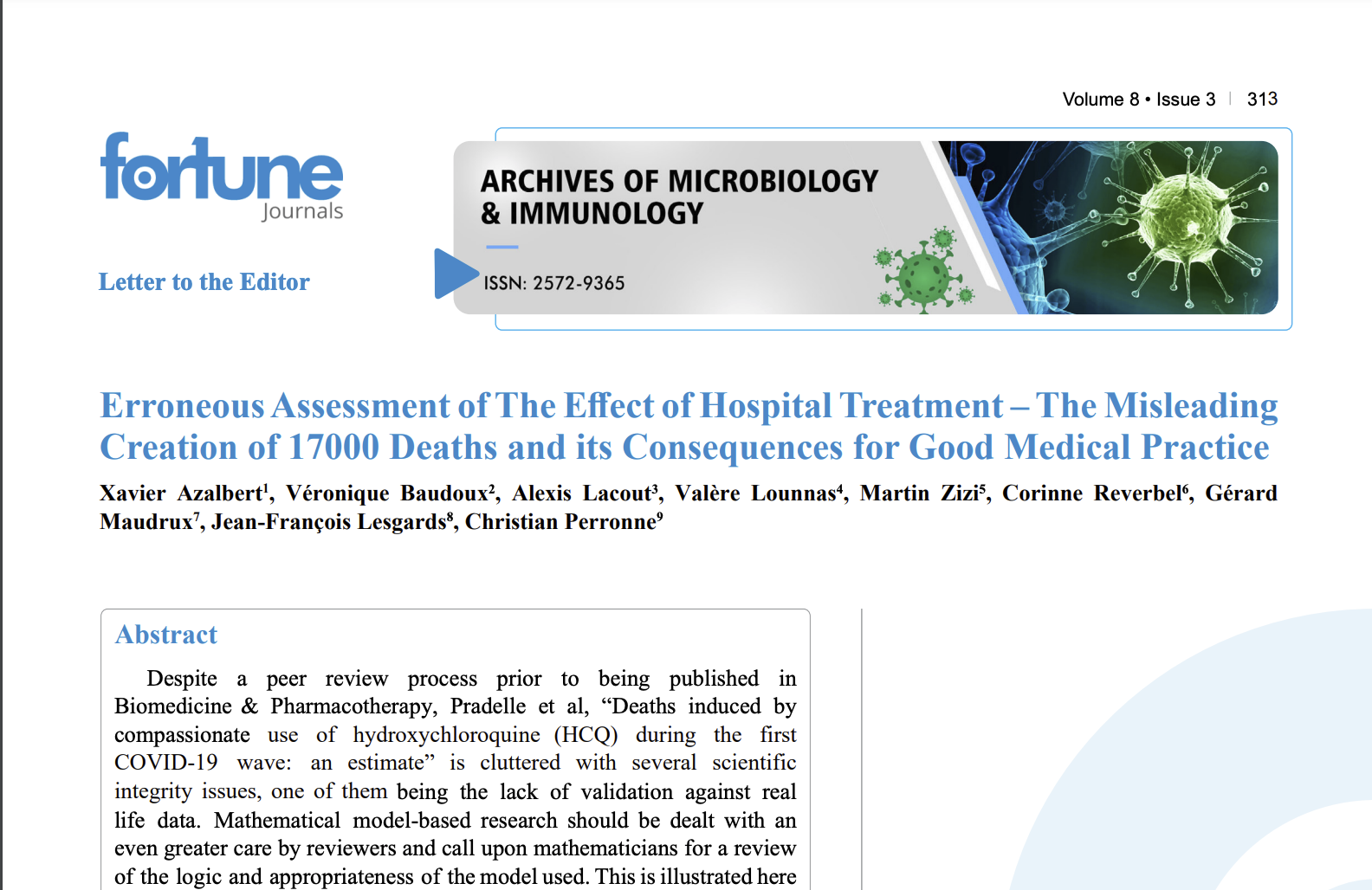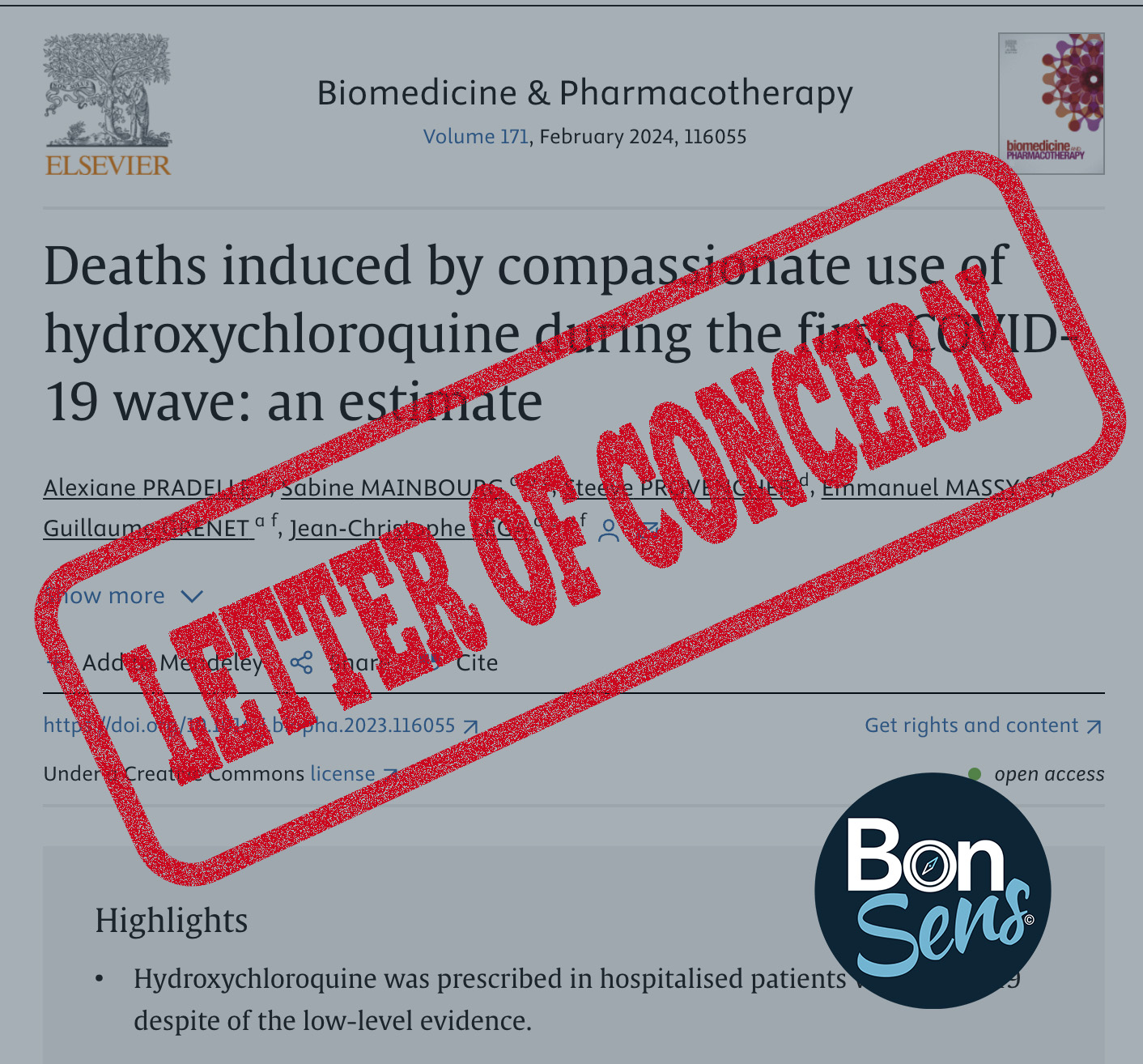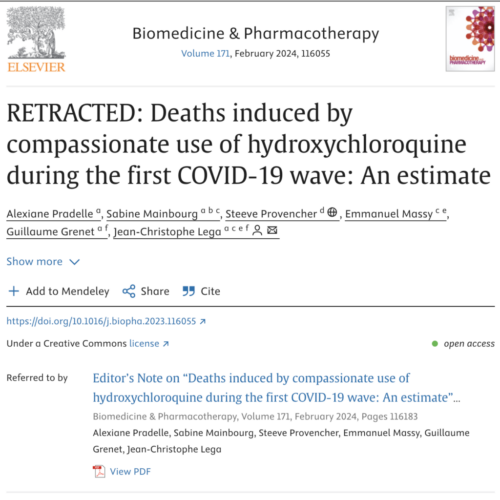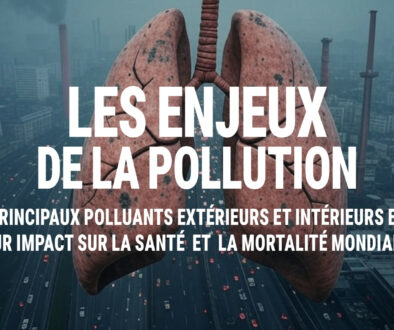Science triumphs over fraud: the article estimating 17,000 deaths due to hydroxychloroquine has been retracted
Les contenus de ce site ne peuvent donc pas constituer des provocations à abandonner ou à s’abstenir de suivre un traitement médical thérapeutique ou prophylactique, ni non plus des provocations à adopter des pratiques ayant une finalité thérapeutique ou prophylactique.
After many months and many hours of work to demonstrate that the Pradelle / Lega study had no scientific value, the entire BonSens.org team is delighted that the publication of this study has been withdrawn. We congratulate all the BonSens.org scientists who helped to demonstrate that this study did not deserve to be published, as it was marred by serious biases and errors.
BonSens.org also congratulates researchers Vincent Pavan and Emmanuelle Darles, as well as many other lesser-known scientists, who helped to make Science win.
On 19 August 2024, the scientists who wrote the Letter of Concern on the Pradelle/Lega scientific fraud learned that the publisher of the journal Biomedicine & Pharmacotherapy had announced the imminent retraction of the study.
Today it has been done: the article has been retracted.
It took 8 months and a few days for the Pradelle/Lega study to be retracted, whereas the Lancet’s fraudulent study on hydroxychloroquine took 14 days.
The retraction of the Lancet study (#LancetGate) was made by the lead author who had failed to show the origin of the data, a demonstration of ‘good faith’ given the worldwide attention received by this study at the time.
In the case of the Pradelle/Lega study, we are witnessing a retraction by the publisher after the COPE (Committee on Publication Ethics) process had been put in place, following consideration of the external observations that had been communicated to the authors.
These considerations had also been communicated to Professor Molimard of the University of Bordeaux, who had promoted this study in the media, even though he had also been informed of the numerous criticisms in exchanges with the authors of the letter of concern. Clearly, this was proof of the authors’ desire to perpetuate this fraudulent study, and thereby contribute to disinformation.
In accordance with its statutes, Bonsens.org hopes that the criminal consequences of this fraudulent study will be drawn.
Here’s what the review says about the retraction:
« Upon completion of this process, and following careful consideration of all available information, this article has been retracted at the request of the Editor-in-Chief.
The decision to retract was made due to two major issues.
- Reliability of the data and choice of the data. The Belgian dataset in particular was found to be unreliable, based on estimates.
- The assumption that all patients that entered the clinic were being treated the same pharmacologically was incorrect.
The above two issues meant that the Editor-in-Chief found the conclusions of the article to be unreliable and therefore the article needed to be retracted. »
In other words, the COPE process recognises a major problem with the reliability of the data and the choice of data, as well as a major problem with the assumption that all patients admitted to the clinic received the same dose of drug.
This last point is crucial, precisely because it raises the serious problem of the massive doses of hydroxychloroquine received by patients hospitalised in the late phase of the RECOVERY study (4 times higher than that normally recommended by the authorities), which was not at all normal practice in hospitals in general throughout the world.
This is a great victory for all those who work tirelessly, and without any conflict of interest, to ensure that science is not captured by a few notorious incompetents.
Reminder of the actions taken in relation to this study

Lettre à l’éditeur sur l’étude frauduleuse estimant à 17 000 les décès par hydroxychloroquine – lettre soutenue par BonSens.org
A la suite de la publication en janvier 2024 d’une étude très critiquable estimant à 17 000 le nombre de décès qui seraient dûs au traitement de patients Covid19 par l’hydroxychloroquine, un pool d’auteurs dont le Professeur Perronne et le Professeur Zizi ont écrit une lettre de préoccupations à l’éditeur (letter of concern). Après plus […]

Mise en demeure par voie d’avocat à l’éditrice en chef du journal ayant publié l’étude estimant des milliers de décès dus à l’hydroxychloroquine
Le temps de la justice ? Une mise en demeure par voie d’avocat a été envoyée à l’éditeur en chef du journal pour donner suite à une lettre de préoccupation envoyée le 7 janvier 2024 remettant en cause l’étude Pradelle /Lega promue par Mathieu Molimard. À ce jour cette lettre n’a toujours pas été publiée […]




